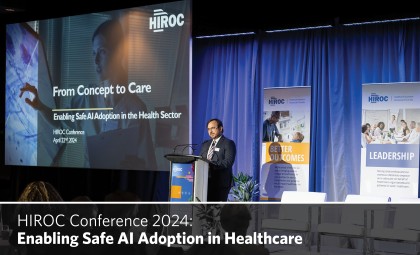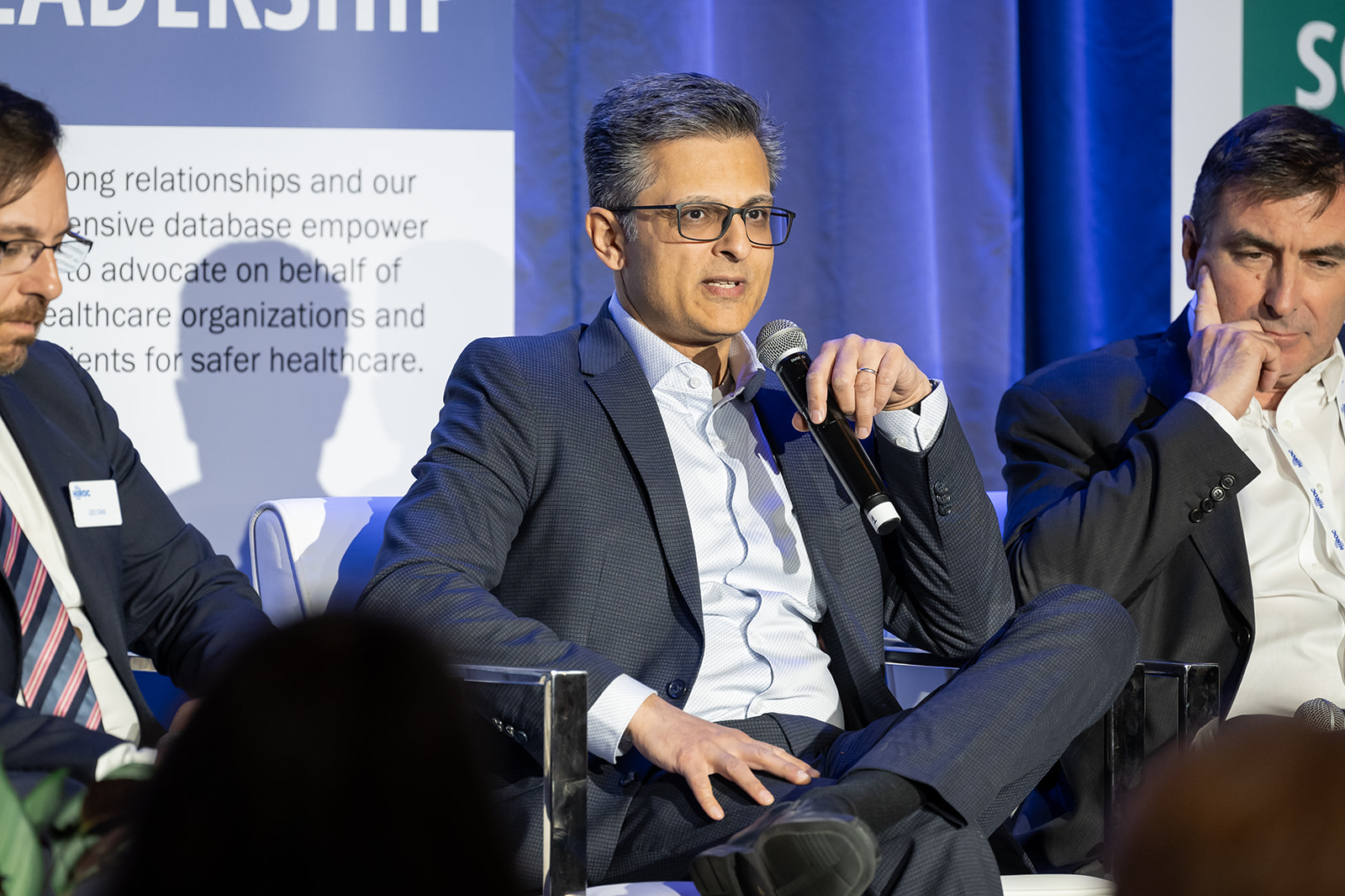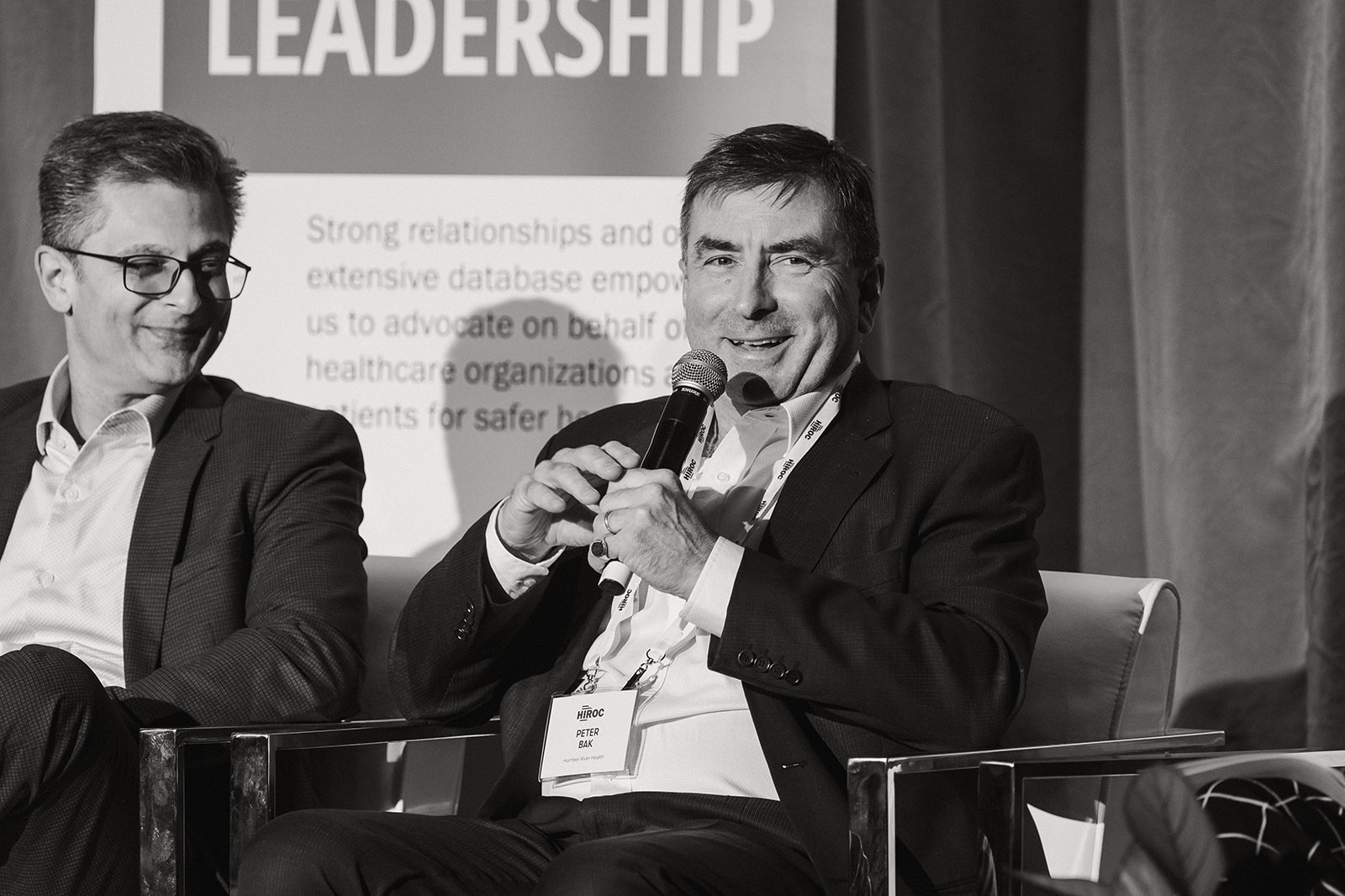HIROC Conference 2024: Enabling Safe AI Adoption in Healthcare

With the rise in artificial intelligence (AI) across industries and the many challenges facing the healthcare sector, it is increasingly important that healthcare organizations consider how to enable safe AI adoption.
One of the biggest challenges we are facing is the healthcare human resources (HHR) crisis; Canada is predicted to hit a shortage of about 117,000 nurses by 2030, and the healthcare staff we do have spend about a quarter of their time on documentation, but AI could help.
Roxana Sultan, Chief Data Officer and VP, Health, at the Vector Institute, spoke about the challenges and opportunities affecting safe AI adoption in healthcare. Vector has 60+ hospital and life science partners and 700+ AI practitioners across all industries.
The Institute’s Smart Health Initiative 2020-24 included
- Getting privacy-enabled access to de-identified health data for AI
- Partnering with Ontario hospitals on data access and AI model development, deployment, and evaluation
- Upskilling clinicians and health administrators in AI (trained 200+ clinicians to learn how to adopt and train AI)
- Hiring and co-hiring top AI talent at health institutions from Vector’s specialized talent pool
AI is currently being tested in various healthcare settings, and one example is in breast cancer surgery. The current standard removes healthy tissue along with the tumor to ensure nothing is missed, but a new surgical tool captures smoke from tissue being vaporized during surgery that can analyze the chemicals in the tissue to determine whether it is cancerous or healthy in real-time and inform surgeons. This reduces the amount of healthy tissue removed and better ensures no cancer is left behind.
“Collaboration among researchers, healthcare providers, and organizations like Vector plays a crucial role in driving responsible AI adoption. By working together to develop and implement safe AI solutions, we can better support hospitals and health service environments in their journey towards effective AI integration ensuring that these advancements benefit all stakeholders, especially patients.” – Roxana Sultan
Q&A Panel with the Experts
Roxana Sultan; Muhammad Mamdani, Vice President, Data Science and Advanced Analytics at Unity Health Toronto; Peter Bak, Chief Information Officer at Humber River Health
Where do you see the most successful benefits of AI in healthcare?
Muhammad Mamdani: AI could be beneficial in a variety of scenarios. Clinicians say they do things they probably shouldn’t have to because there is no one else to do them, like administrative work. Humans also struggle with critical decision-making that can result in misdiagnoses, as well as prognoses and treatment decisions that are mostly done by trial and error. Another area is communication which is key but sometimes lacking – over half of patients discharged don’t understand their diagnoses, treatment plans, or follow-up. AI can help with all these challenges.

What are main risks and ethical considerations for AI in healthcare?
Roxana Sultan: There are fundamental issues with the input data collected historically creating bias, so AI needs to take an objective lens and see how this will function in the real world. We also must consider how we will position AI in healthcare – it is supplementary and not meant to replace human practitioners. It is critical that we continue to build the knowledge and capability of healthcare service providers to ensure we drive benefits, not harms, when using AI. But most importantly, regulations are required to ensure trustworthiness in an ethical framework both at the government and organization level.
How can healthcare organizations plan for the safe adoption of AI?
Peter Bak: If your AI strategy is not fully formulated, perhaps stay away from trying to use AI on the clinical decision side for now and focus on AI that assists with tasks and can reduce workload. But adopting AI will require effort like regulations for data and security. Working collaboratively with other hospitals that are using it would be beneficial because it is a big undertaking for one organization, especially smaller ones. Governance and regulation are key to enabling safe AI adoption in healthcare.

Thank you to the insightful speakers and everyone else who attended the conference! It was great to see so many of you in person for a day of connection, collaboration, and knowledge-sharing about these important topics. We hope to see many of you at our upcoming East and West Coast Safety Symposiums in the fall for more learnings!
If you missed them, here are the first two articles in this series:
HIROC Conference 2024: Turning Tragedy into Advocacy, Becoming a Better Leader, & Reinforcing Resiliency
HIROC Conference 2024: Stories from Our Subscriber Partnerships
By Gillian Brandon-Hart, Communications and Marketing Specialist, HIROC
